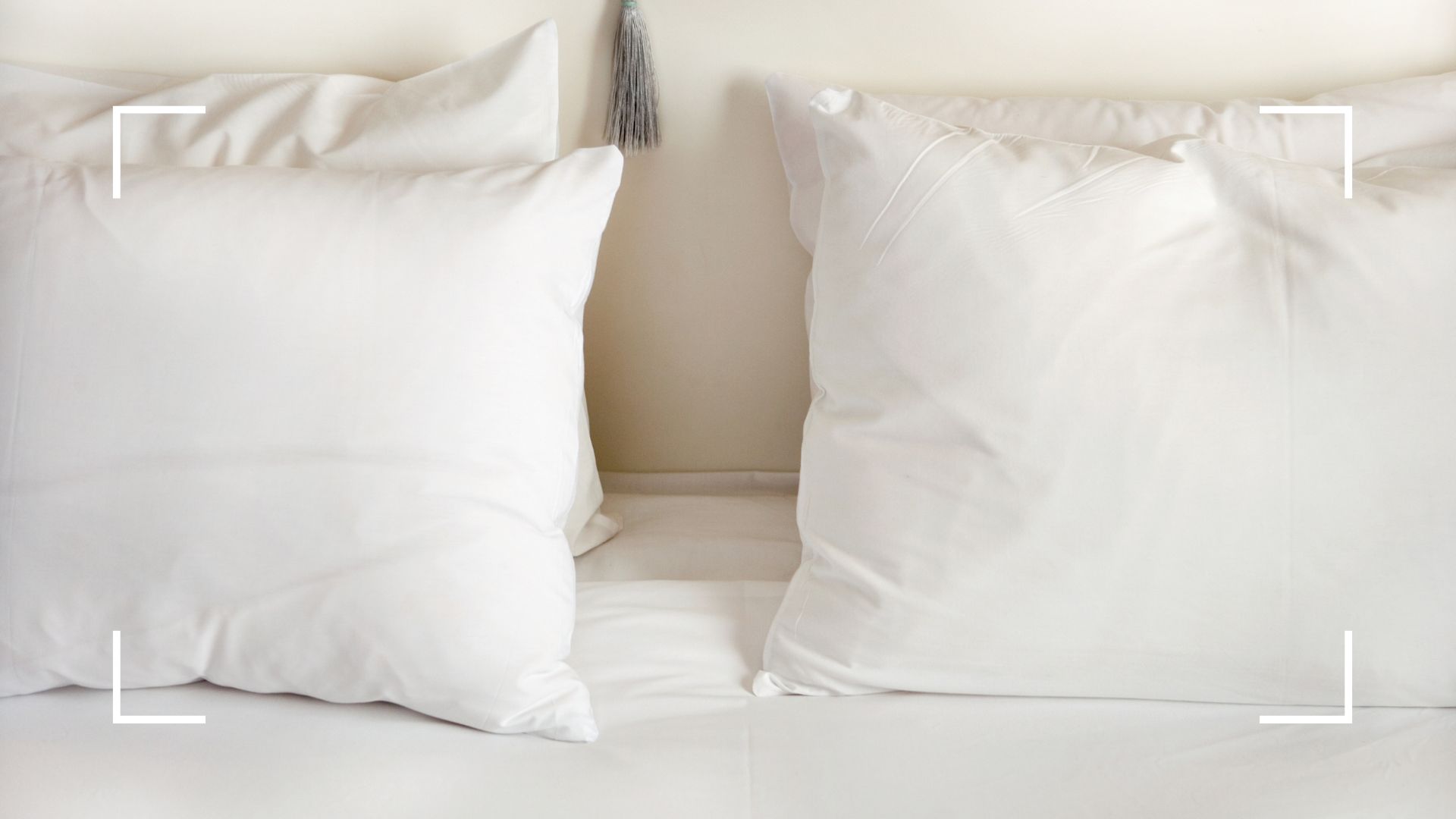
When it comes to securing a good night's sleep making your bed as comfortable as possible is key. But do pillow protectors really help or are they just an unnecessary bedding addition?
Now, you may already own the best pillows money can buy, be it the best cooling pillows or best pillows for neck pain, but is your bed set-up truly complete without pillow protectors?
Whilst you may not have ever considered pillow protectors a key element in your bedding collection, they have several benefits.
To get to the bottom of whether these added layers are really necessary we spoke to sleep and bedding experts to determine if pillow protectors are worth it.
Are pillow protectors worth buying?
Although ensuring you have one of the best mattresses is definitely top of the priorities list, there are smaller components to your bedding that you'll want to invest in too.
"I highly recommend purchasing a pillow protector to improve your sleep quality and extend the overall lifespan of your pillows. While pillowcases offer comfort and style, protectors provide an extra layer of defence to keep your pillows safe from potential harm," says Hafiz Shariff, founder of sleep wellbeing company Owl + Lark.
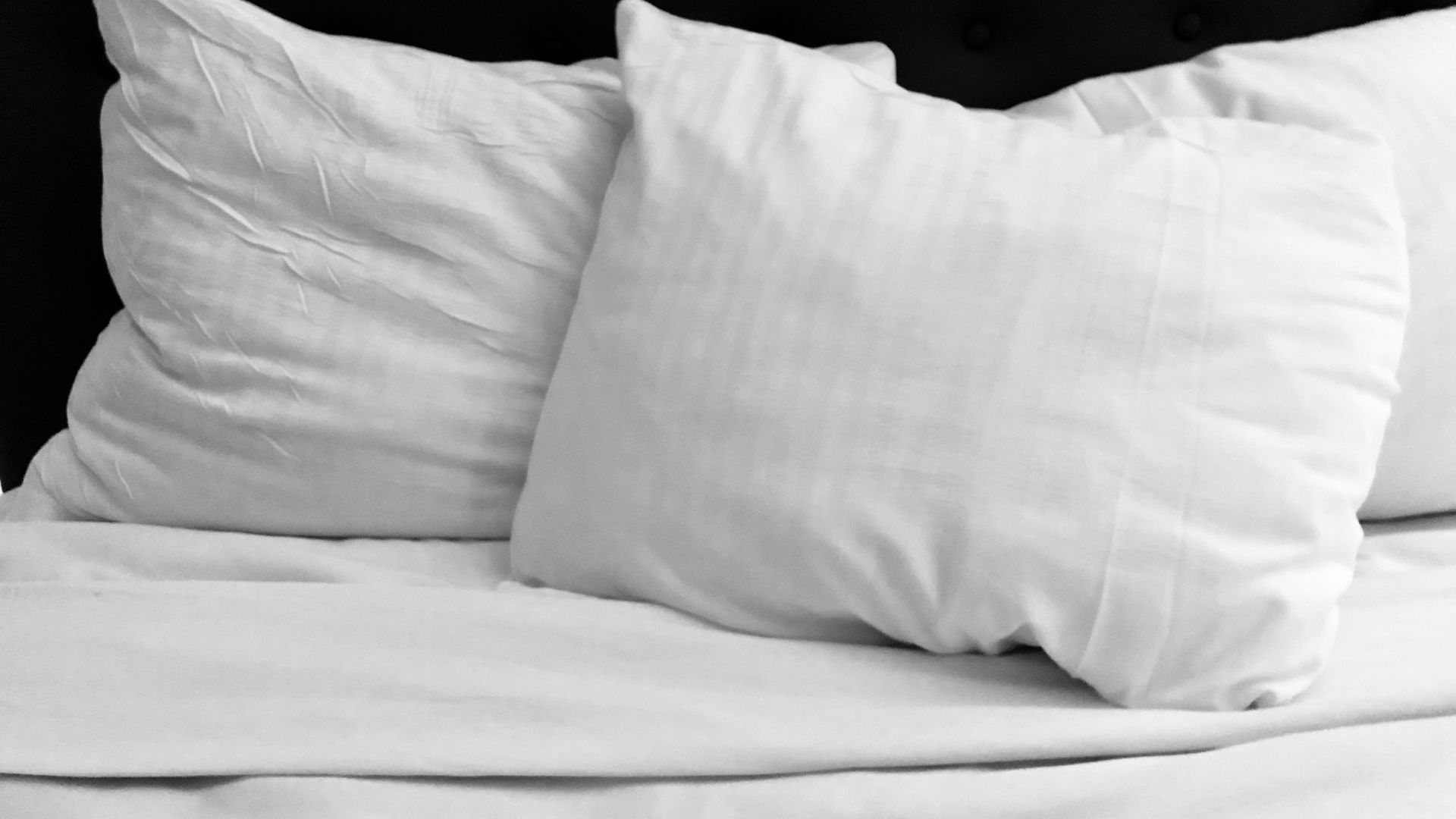
Hafiz goes on to explain that pillow protectors essentially act as a barrier against allergens, dust mites and spills which leaves you with a cleaner more hygienic sleeping environment. This is super important as increasing your sleep hygiene can make a huge difference in your overall health.
It's also helpful to have a protector on your pillows as they prevent stains and odours from setting in, this means you can avoid figuring out how to remove yellow stains from your pillows sooner than you'd like.
Our top Pillow Protector picks
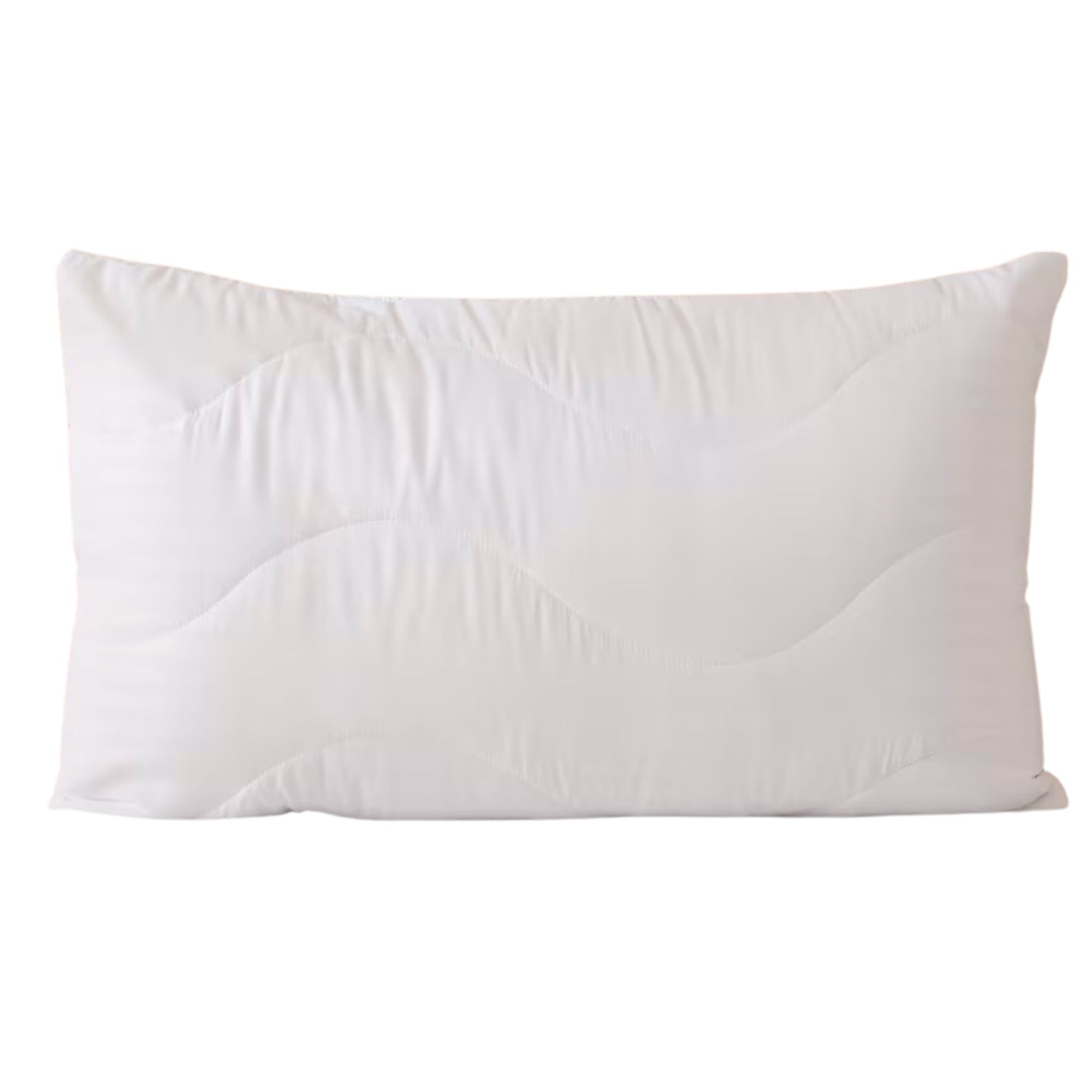
RRP: £14 | Should you be particularly perceptible to dust mites and other allergens while you sleep these protectors are perfect. They're designed to withstand a 60-degree wash as well as being able to be washed and dried all within a day.
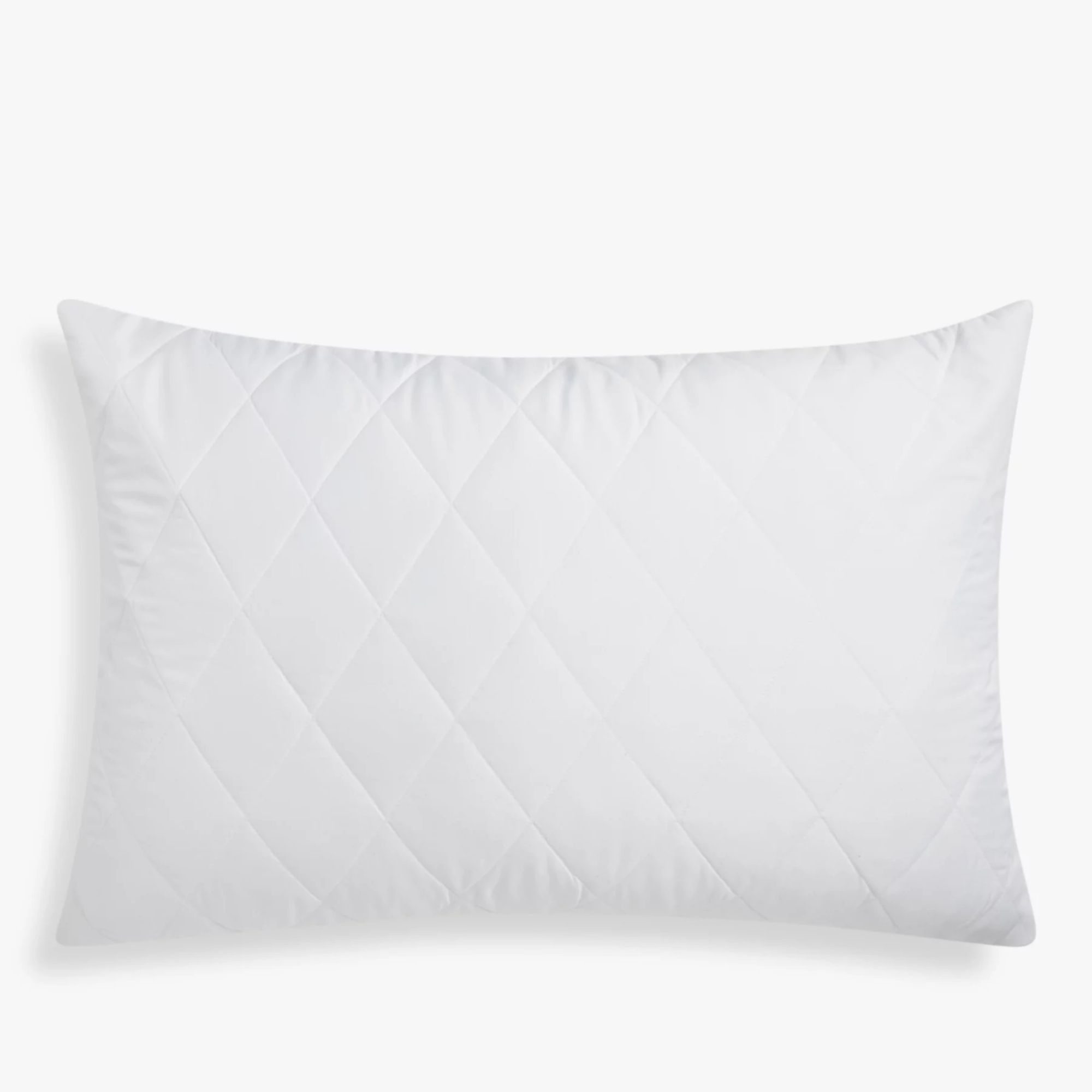
RRP: £9.50 | For anyone who is prone to night sweats or spilling their cuppa in bed, this waterproof pillow protector is perfect. It combines a soft quilted top with a quiet polyurethane reverse which will stop any liquid from hitting your pillow underneath.
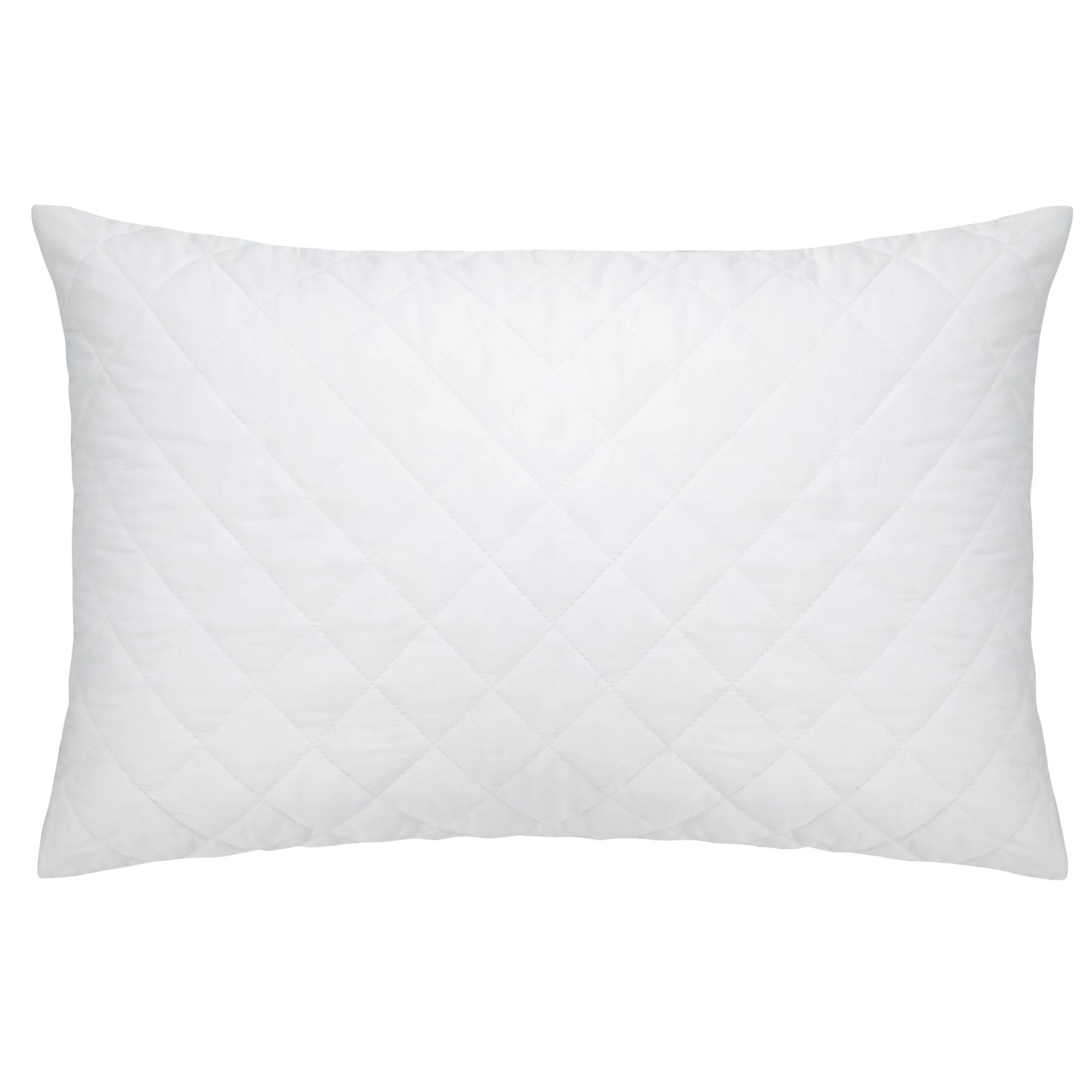
RRP: £10 | This protector is made with a naturally breathable cotton filling and has a quilted outer layer that provides an extra bit of comfort and softness to your pillow. Just make sure you only wash this one up to 40 degrees to keep it performing its best for longer.
FAQs
What are the benefits of a pillow protector?
Now you know that buying pillow protectors is just as important as having one of the best mattress protectors, what are the other benefits?
"I believe pillow protectors are vital for maintaining good sleep hygiene and mitigating the risk of gradual wear and tear," says Hafiz. "Investing in premium pillow protectors can be a very cost-effective method of safeguarding your sleep space, especially if you have allergies or sensitive skin."
It's also important to keep your pillowcases and protectors clean, Hafiz says this can lead to healthier sleep habits in the long run. Clair Watkin, CEO of Fine Bedding explains that it's best to clean your pillow protector in a wash of 60 degrees as this will ensure all the nasties that layer has caught are killed and removed from the material.
Does a pillow protector replace a pillowcase?
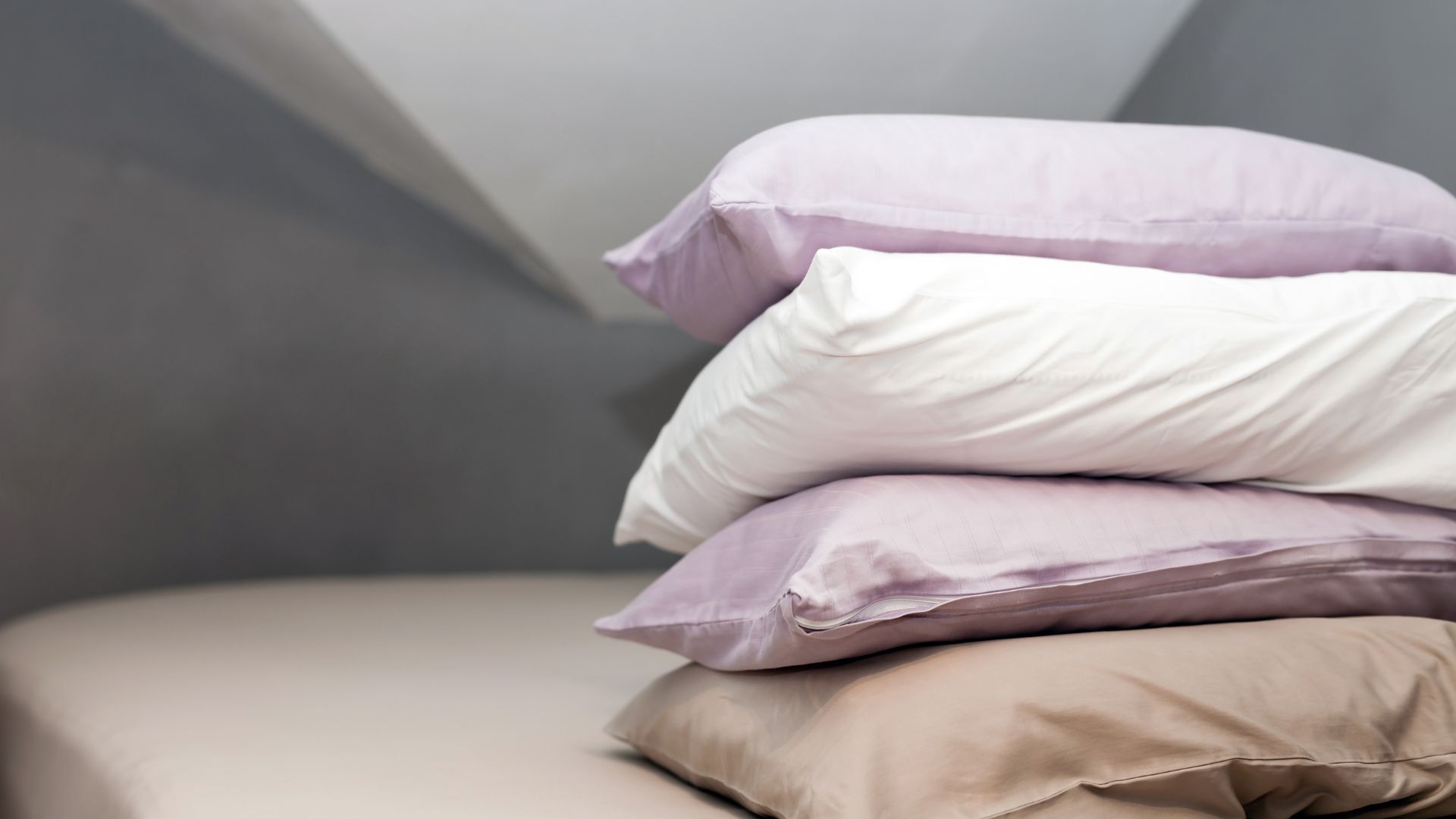
You may have asked yourself in the past, which do I need more a mattress topper or a mattress protector and the answer was both. This is the exact same situation, pillow protectors and cases are not interchangeable.
Claire explains, "The short answer is no. They serve different purposes. The pillowcase is there to provide comfort and aesthetics primarily while the pillow protector does what it says and protects your pillow from allergens, dirt, wear and tear, excess moisture and more extending the life of the pillow."
So if you don't want to have to buy new pillows every few years, picking up a protector to work alongside your case is the only way forward.
Is it okay to sleep without a pillow protector?
Luckily there's no bedding law that says you have to use a pillow protector it's just very much recommended by the experts. In the same vein, you don't have to follow the recommended timeframe for how often you should change your pillows, it's best for your sleep hygiene that you do.
"There are no hard and fast rules and while it’s not essential, for all the reasons above we would recommend it. However, a good pillow case, washed regularly will also have some of the same hygiene benefits," says Claire.
"It is also possible to buy wash at-home pillows, remember not all pillows are washable (see our guide on how to clean a pillow). They may however take up a little more room in your washing machine and there is the extra water usage, added drying time and reduced life of the pillow to consider too," she continues.
In the end, it's strongly recommended you have both a pillow protector and a pillowcase to ensure a better night's sleep.
If you're in the market for some new pillows then there are a few things to consider when it comes to how to choose a pillow. You'll want to think about how many pillows you need to sleep with depending on your sleep style and of course preference. But remember to pick up some protectors for them.







